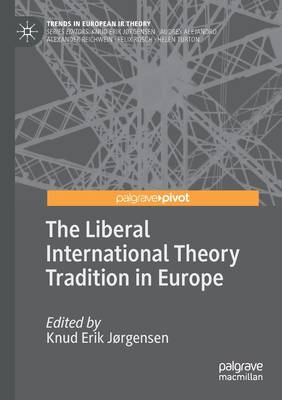
- Retrait gratuit dans votre magasin Club
- 7.000.000 titres dans notre catalogue
- Payer en toute sécurité
- Toujours un magasin près de chez vous
- Retrait gratuit dans votre magasin Club
- 7.000.000 titres dans notre catalogue
- Payer en toute sécurité
- Toujours un magasin près de chez vous
The Liberal International Theory Tradition in Europe
Description
This book examines how the liberal international theory tradition evolved in Europe. It includes nine chapters focusing on both historical and contemporary branches of liberal IR theorizing. The combined portrait of the prominent IR theory orientation shows a long and rich theoretical tradition but also a tradition that the scholarly community rarely fully recognize. It is currently somewhat challenged and therefore in need of further advances. Concerning the historical branches, the authors present a truly European tradition that thus was not only present in a few countries. The contributors introduce examples of liberal theorizing that IR scholars tend to dismiss and they trace the boundaries between the liberal and other theoretical traditions. Given the prominence of the tradition, the book is surprisingly among the first to present a transnational perspective on the development of the liberal international theory tradition in Europe.
Spécifications
Parties prenantes
- Editeur:
Contenu
- Nombre de pages :
- 143
- Langue:
- Anglais
- Collection :
Caractéristiques
- EAN:
- 9783030526450
- Date de parution :
- 06-01-22
- Format:
- Livre broché
- Format numérique:
- Trade paperback (VS)
- Dimensions :
- 148 mm x 210 mm
- Poids :
- 213 g






